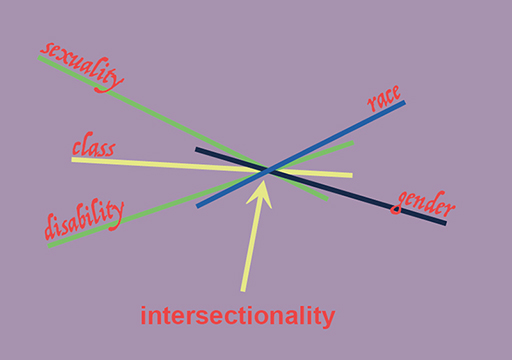2 Intersectionality and Black leadership
The word ‘woke’ originated within Black history and culture, referring to the practice of being alert to the dynamics of racial and other forms of oppression (Romano, 2020). Being woke, in other words, should be a positive state of consciousness that means you observe the world and act in it in ways that enhance equity and justice. It has been highjacked in recent years by the political right, mostly in the US, as part of the culture wars, with the word used in derogatory terms to denote someone who is too judgmental, politically dangerous, even unpatriotic, or many other pejorative terms. That is a shame as being woke in its original sense promised liberation and allyship.
An academically grounded concept not too far away in meaning to the original sense of woke is ‘intersectionality’ (Collins, 2000; Crenshaw, 1991). This is a perspective that grew from a desire to better understand the various ways in which Black women were marginalised.
Rather than viewing identity as a singular possession, as one thing by which we’re defined, intersectionality sees identities as multiple. Race, gender, body, sexuality, ethnicity, class, all play a role as multiple identities that merge – intersect – to produce particular experiences for people in society and at work. Furthermore, some people tend to experience more oppression than others due to how they are positioned within identity intersections. Rosa Parks, for example, had to overcome prejudice in relation to her race, gender and social class.
Research increasingly shows how intersectional identities can be ‘characterised by fluidity and indeterminacy’ (Adamson and Johansson, 2016, p. 2205). This means that identities change along with social and economic forces, as well as specific time and place: race, gender, class, and sexuality are viewed differently depending on where and when you are situated. For example, when Rosa Parks travelled to US states further north, she was viewed differently and given more opportunities for leadership (though these states still had significant race, gender and class prejudice). The fact that intersectional identities can be influenced and adapted highlights the potential for leadership.

